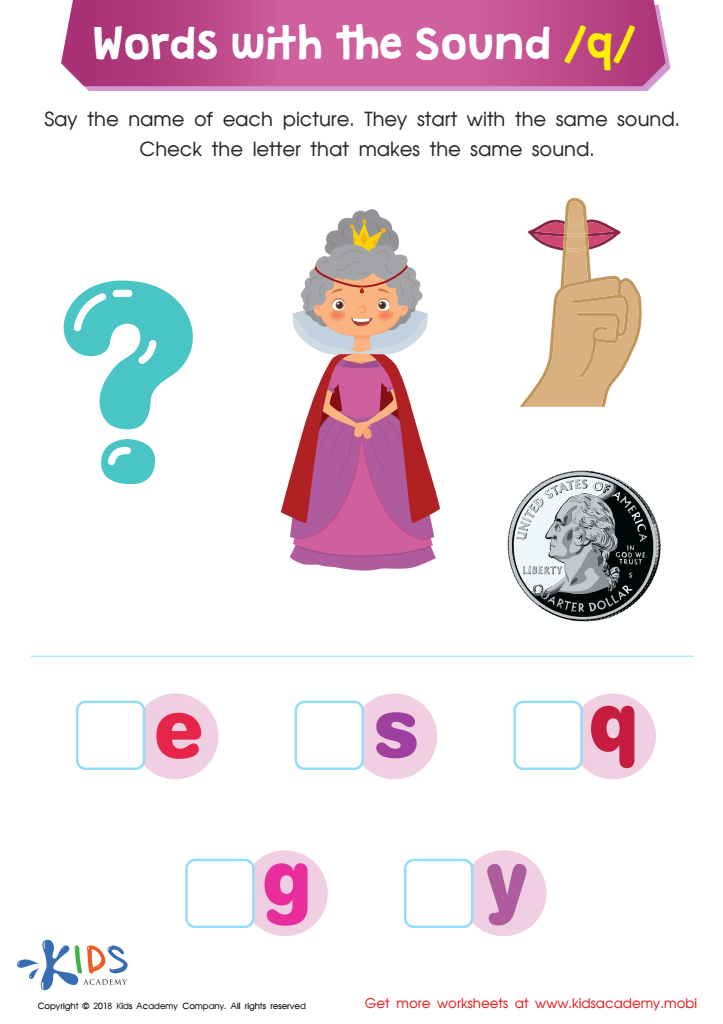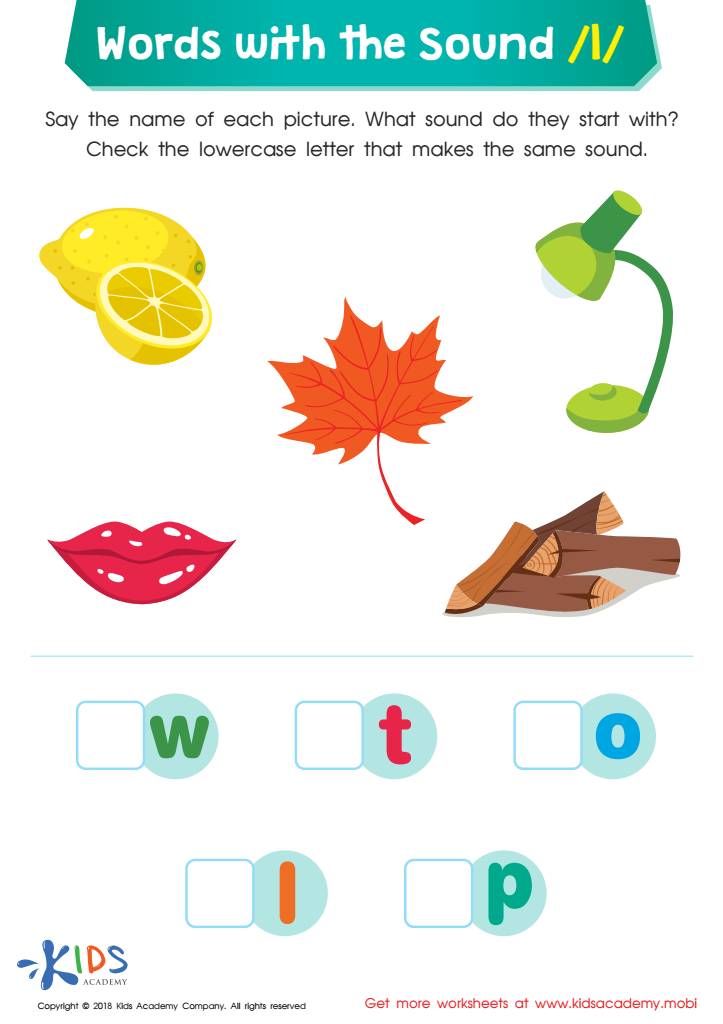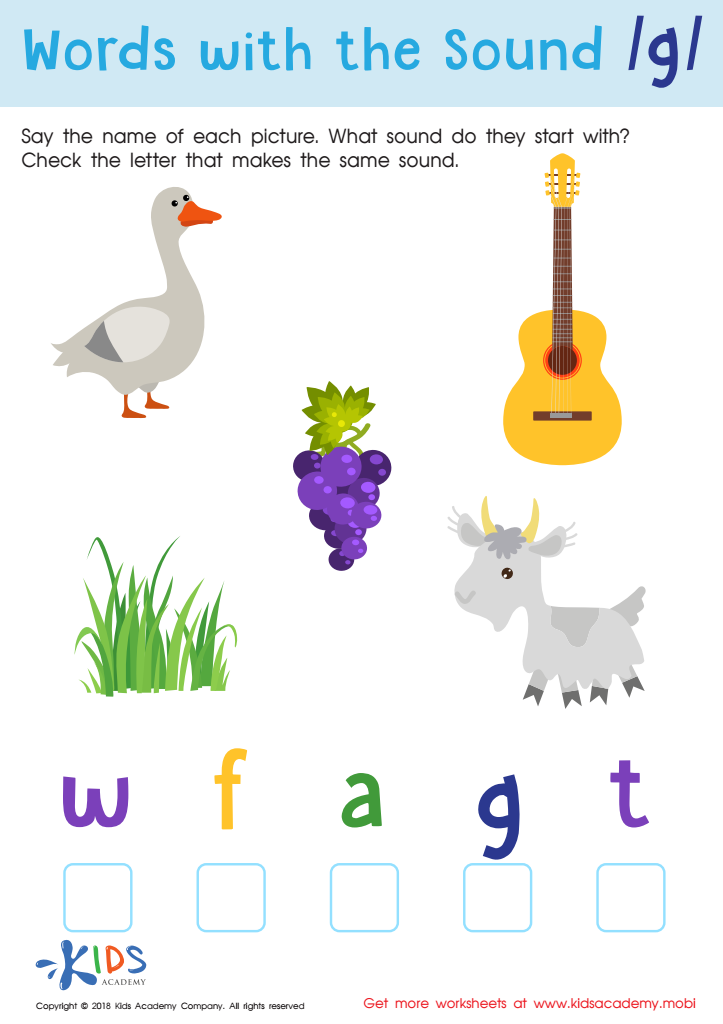Easy Beginning Consonants Worksheets for Ages 4-7
3 filtered results
-
From - To
Welcome to our "Easy Beginning Consonants Worksheets" section, specially designed for children ages 4-7! These engaging worksheets help young learners grasp the foundational skills of phonics by focusing on initial consonant sounds. Each worksheet features fun and interactive activities that encourage children to recognize and write beginning consonants, enhancing their reading and writing abilities. Aligned with early literacy standards, our resources offer a perfect blend of educational content and entertaining designs, making learning enjoyable. Inspire your child’s confidence in language arts with our carefully crafted printable worksheets, ideal for home or classroom use. Start the journey to reading success today!


Words with Sound Q Reading Worksheet


Words with Sound L Reading Worksheet


Words with sound g Reading Worksheet
Easy Beginning Consonants play a crucial role in early literacy development for children aged 4-7. During this formative stage, children actively learn the sounds of letters, which is foundational for reading, writing, and communication skills. Recognizing and producing beginning consonants helps children decode words, making them more confident readers.
Parents and teachers should prioritize this skill because it fosters phonemic awareness, enabling children to manipulate sounds in words effectively. Mastering beginning consonants also enhances vocabulary and spelling, essential components of comprehensive literacy. When children understand the sounds associated with letters, they become better equipped to experiment with writing, contributing to their overall language development.
Moreover, engaging activities that focus on beginning consonants create a fun learning environment, promoting enthusiasm for letters and sounds. Parents and teachers can incorporate games, songs, and storytelling to make learning interactive. This foundational skill not only supports immediate literacy but also roles into later reading fluency and comprehension. Ultimately, caring about Easy Beginning Consonants helps lay the groundwork for children's academic success and love of learning, crucial for their educational journey ahead. Through this attention, educators and parents provide young learners with the tools they need to thrive as they grow.
 Assign to My Students
Assign to My Students














